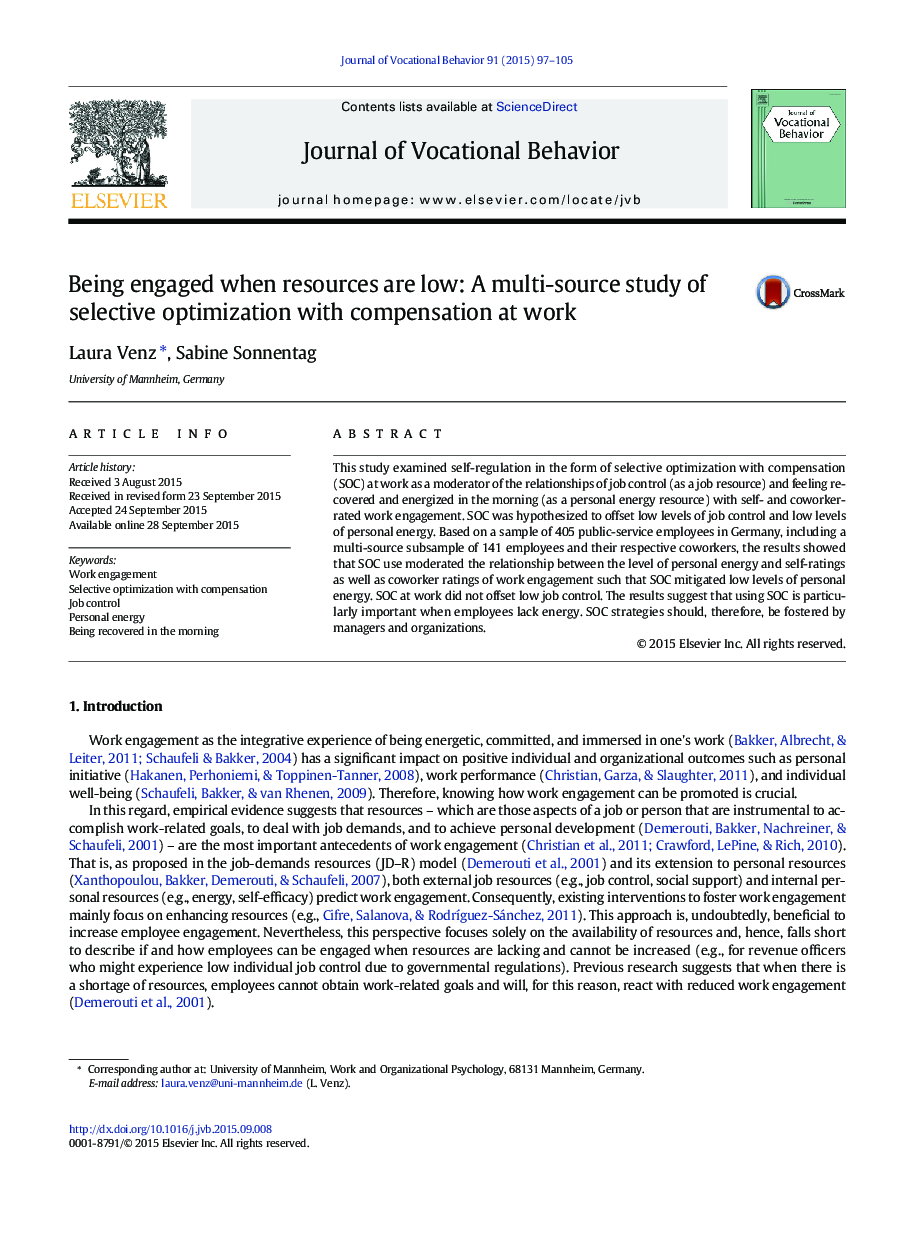| Article ID | Journal | Published Year | Pages | File Type |
|---|---|---|---|---|
| 886740 | Journal of Vocational Behavior | 2015 | 9 Pages |
•We studied selective optimization with compensation (SOC) and work engagement.•We focused on the particular importance of SOC when resources are short.•SOC was positively related to self- but unrelated to coworker-rated engagement.•SOC offsets low levels of personal energy in relation to self- and coworker-rated engagement.
This study examined self-regulation in the form of selective optimization with compensation (SOC) at work as a moderator of the relationships of job control (as a job resource) and feeling recovered and energized in the morning (as a personal energy resource) with self- and coworker-rated work engagement. SOC was hypothesized to offset low levels of job control and low levels of personal energy. Based on a sample of 405 public-service employees in Germany, including a multi-source subsample of 141 employees and their respective coworkers, the results showed that SOC use moderated the relationship between the level of personal energy and self-ratings as well as coworker ratings of work engagement such that SOC mitigated low levels of personal energy. SOC at work did not offset low job control. The results suggest that using SOC is particularly important when employees lack energy. SOC strategies should, therefore, be fostered by managers and organizations.
